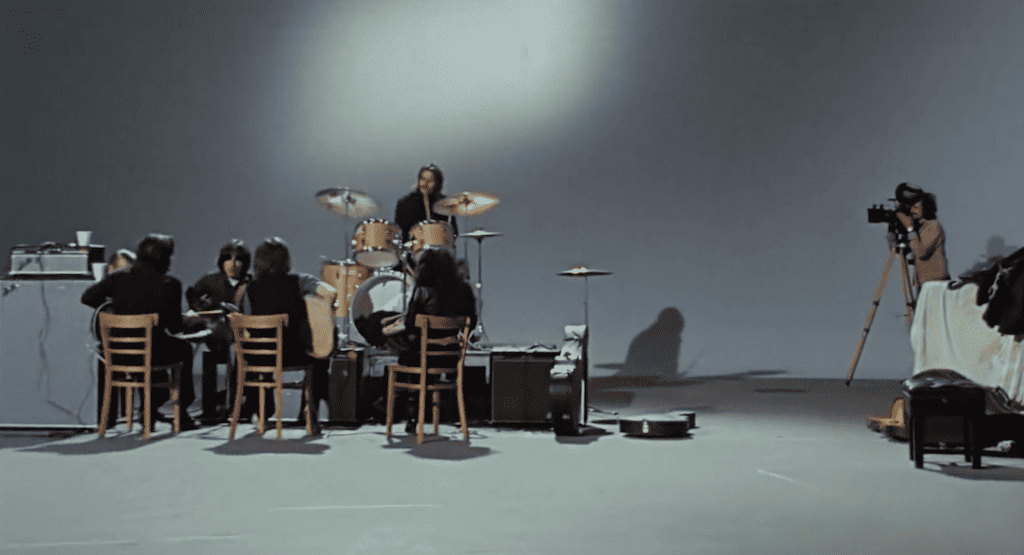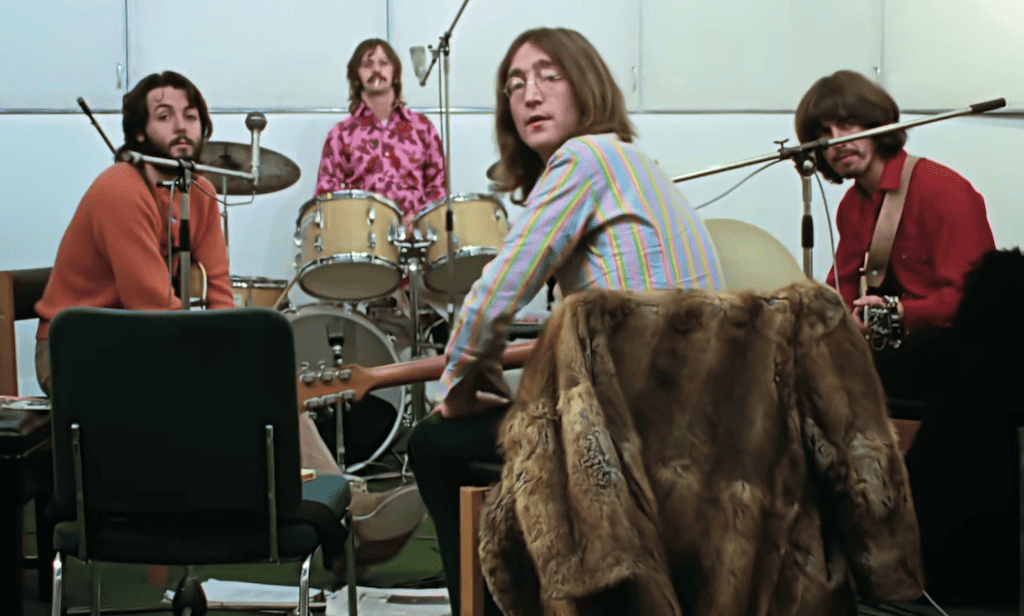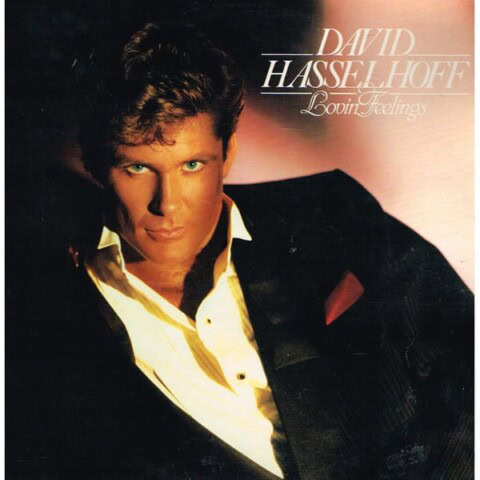Guest reviewer GEORGE HENDERSON writes about the band that came in from the cold – on Peter Jackson’s sprawling Get Back film.
 The Beatles Get Back, whether documentary or just the best reality show imaginable has, despite its essential tediousness, despite its musical material (but not the playing) being some of the worst the Beatles ever committed to vinyl, made itself compulsive and immersive viewing for all sorts of reasons.
The Beatles Get Back, whether documentary or just the best reality show imaginable has, despite its essential tediousness, despite its musical material (but not the playing) being some of the worst the Beatles ever committed to vinyl, made itself compulsive and immersive viewing for all sorts of reasons.
Would you like to support our mission to bring intelligence, insight and great writing to entertainment journalism? Help to pay for the coffee that keeps our brains working and fingers typing just for you. Witchdoctor, entertainment for grownups. Your one-off (or monthly) $5 or $10 donation will support Witchdoctor.co.nz. and help us keep producing quality content. It’s really easy to donate, just click the ‘Become a supporter’ button below.
We finally understand the band’s hierarchy, which is partly based on age (John, the eldest, is the true leader and has once again abdicated in favour of his trusted lieutenant Paul, but George is still the youngest), partly on songwriting success (Lennon and McCartney have the confidence to not only help each other out but also let any factotum within earshot with an inspiration contribute to their works-in-progress, George doesn’t need any help, and no-one considers helping Ringo who needs it most).
We have a fascinating insight into the British class system in the interactions between The Beatles, lower-middle-class, self-educated, self-modernized and rich as Croesus, and the upper-middle-class public schoolboys who are in their employ, but as producers and directors who still really need to tell them what to do.
 George Martin in particular, outside the studio he commanded and watching a beautiful, easy-going and competent Glynn Johns make all the right moves, seems bored, unhappy and distanced.
George Martin in particular, outside the studio he commanded and watching a beautiful, easy-going and competent Glynn Johns make all the right moves, seems bored, unhappy and distanced.Musicologically, the penny drops very early on in Part 1, and I couldn’t be happier. John riffs on Anton Karas’s ‘Harry Lime Theme’ from Carol Reed’s 1949 film The Third Man, confirming what I’ve suspected for a long time, that this influence is the secret of the Beatle’s free chromaticism (free as in, detached from the modulations of the American standards in their songbook), that its link to Central European intrigue is what gives their music both its emotional poignancy (a sense of mystery, danger and of longing based in the existence of irreparable separations) and its internationalism (the Beatles, as a group, were already looking East before George discovered India).
We hear it openly in ‘Michelle’, ‘Here There And Everywhere’, and the solo in ‘Girl’, but it underlies much of their writing as a possibility that allows the unexpected, and separates their music from that of their talented peers who didn’t stray from the trans-Atlantic idioms of their day.
Get Back is available to view on Disney+. George Henderson is the Kiwi legend behind bands like The New Existentialists, The Puddle, The Amps, The Spies and The And Band.
















